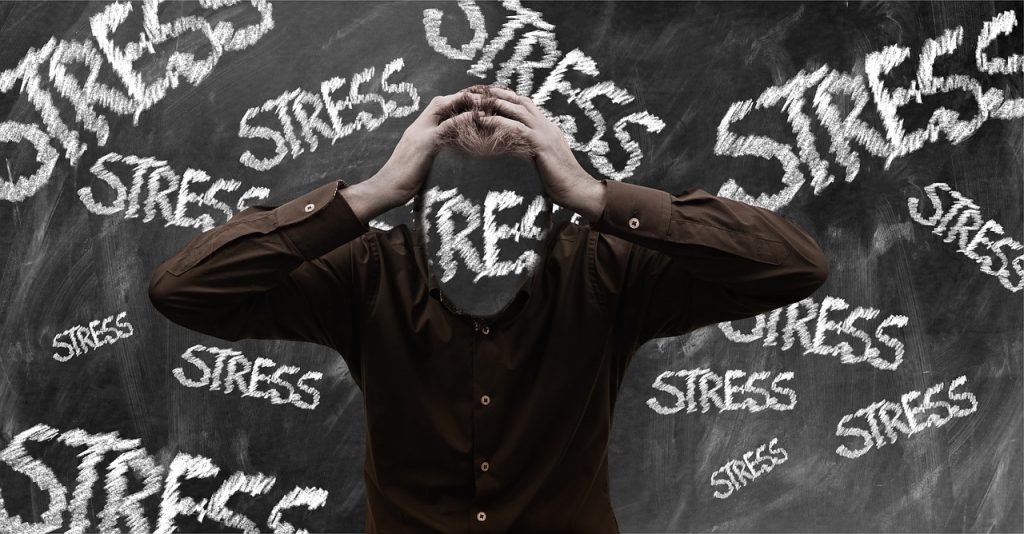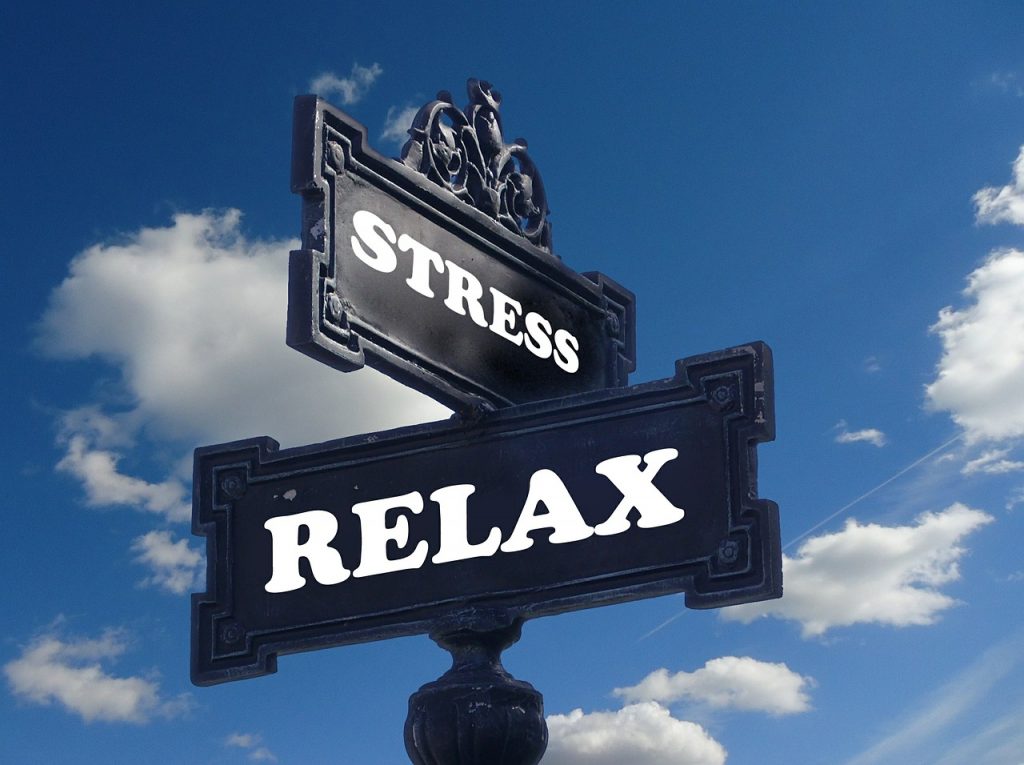It’s something we all talk about. How many times have you heard a friend or colleague say: “I’m really stressed out today!” Of course, many of us use the word stress very loosely. Often we simply mean that we’ve had a bad day, and now all we want to do is get a drink, sit down in front of the TV, and chill out.
But for more and more of us stress isn’t just another word for the hassle. It’s something we face every day; a constant thread in our lives that keeps us awake at night puts us on edge all through the day and fills our mind with tension and fear.
Do any of these phrases sound familiar?
“I seem to be worrying all the time.”
“I just can!t concentrate on anything, and I can!t get organized, either.”
“My memory is terrible these days.”
“I don!t feel good about myself; I’ve lost my confidence.”
“Little things make me panic; I find myself gasping for breath.”
“When I speak to people I find myself talking too fast.”
All these things are symptoms of stress, and sometimes there are physical symptoms, too
“I get headaches, and I seem to blush for no reason.”
“I get attacks of dizziness in the middle of a working day.”
“These days my digestion seems to be off; I always seem to have heartburn or indigestion.”
“I find myself sweating when it isn’t hot, or shaking when it isn’t cold.”
“I can’t get to sleep at night; my mind just keeps racing. And if I do get to sleep, I get nightmares.”
If any of these symptoms sound familiar, then it’s possible that you’re under greater stress than you think, stress that could actually be damaging your health, both now and in the longer term.
So why is stress a problem?
In small amounts, it isn’t. Many things cause short-term stress – including a lot of things we enjoy, like games, challenging tasks at work, a difficult job at home, or a really engaging computer game. In most cases here the stress is very enjoyable, and the end result is a feeling of satisfaction – a challenge overcome, a job well done, or a game well played.
Stress can even be good for us. For example, if we find it difficult to pay the bills, we might respond to that stress by asking for a raise, or even finding a better job!
The problem comes when we’re under stress for all or most of the time, especially when this happens at work. And that’s an ever more common scenario because our everyday working lives have become increasingly stressful. In fact, if the trend continues, then by 2025 around half the adults in the world will be suffering from high blood pressure. And that isn’t just a theory. It’s the conclusion of a carefully researched report.
- Work-related stress accounts for over a third of all new incidences of ill health.
- Each case of stress-related ill health leads to an average of 30.9 working days lost.
June Davison of the British Heart Foundation has been quick to point out the necessary response. “It is important to identify things that cause you to stress and look at how you deal with stressful situations,” she says.
Why?
Because if the stress continues, it won’t just take a psychological toll, damaged relationships, problems at work, and poorer quality of life. It will also take a physical toll that can lead to more serious conditions like heart disease.
So what is stress?


It seems absurd that something as intangible as stress can have such a dramatic effect on our health, on our lives, and on society as a whole. But it can, and it does, so we need to understand it and learn how to deal with it.
First of all, then: what is stress?
There’s more than one way of defining it, so here are two of the most useful.
- Stress is the result of our own perception that the demands we have to meet are greater than our ability to deal with them. As a result of that perception, you may feel “out of your depth” or “at the end of your tether.”
- Stress is the adverse reaction people have to excessive pressure or other types of demand placed on them.
In other words, stress has a great deal to do with the way we look at our own lives. If we feel we can cope with the pressures and demands on our time, our abilities and our money then there’s no problem. If we can’t, we feel stressed.
So why does that produce physical symptoms?
For the answer, we have to look back into our own evolution; our development, over millions of years, from more primitive creatures. Because the relics of those primitive creatures are still with us.
Millions of years ago the ancestors of human beings had a very simple brain. And it’s almost as though that simple brain is still with us, governing our instinctive responses to the world around us.
If you confront a primitive creature with something threatening, it has just two possible responses. It can stay, and fight – or it can run away. Fight or flight. The trouble is that this creature can’t tell the difference between a real threat and an imagined one. So even if the threat is simply something we have been thinking about the response is the same; fight or flight.
And the results are very physical!
- Your heart starts to beat faster, carrying oxygen and nutrients and clearing away waste products so your muscles will have the blood supply they need for intense physical effort.
- As your heart beats faster, your blood pressure starts to rise.
- Adrenaline and other hormones are released, helping to give you the energy you will need, raising awareness, and sharpening your responses.
- Your liver releases stored sugar for more energy.
- Your pupils dilate to let in more light, so you can see the danger more clearly.
- All your senses become sharper and more efficient.
- Your muscles are tense, ready for action.
- Blood flow to the hands and feet is restricted, and they start to cool.
- Your body grows hotter as your blood pressure increases, and you begin to sweat as it tries to cool itself.
And yet nothing physical has happened. You’ve simply imagined, remembered, or anticipated something your subconscious regards as a threat!
You’ve also started to program yourself with this response. This means that the next time you have the same thought, you’ll respond in much the same way but faster, and more intensely.
You may even start to worry about the response which increases your stress levels still further. And the result can be a series of unpleasant physical symptoms. Palpitations. Muscle pain from excessive tension. Insomnia. Breathlessness. Numbness. Tingling. Dizziness. Sickness. Fainting. Headaches. Indigestion and Diarrhea. Fatigue. Chest pains. Blurred vision. Nausea. Shaking. And, quite possibly, many more.
The good news is that once you understand stress, and recognize it, you can learn to manage it. Better yet, it isn’t even difficult!
Dealing with stress
Stress arises because of a particular set of behaviors that we learn and repeat. Fighting back involves learning and repeating a different set of behaviors that will reduce stress and restore calm.
So where do you start?


Well, here are some useful first steps.
- Learn to relax! Relaxation is the opposite of “fight or flight” and there are many ways to achieve it. You could try meditation, progressive muscular relaxation, and deep breathing. Some forms of exercise like yoga and tai chi can also help you to relax better.
- Find out what “triggers” your stress. Keep a diary or a log and write down the things that make you tense up or start to worry, and the things that make you feel relaxed and happy.
- Take a look at your lifestyle. Are you eating and drinking sensibly? Do you take enough exercise? Vigorous exercise is a great way to get rid of the tension that builds up when you’re stressed!
- Develop coping strategies. Think about the things you do now to keep stress at bay, and the things you could do better when you’re faced with a challenge.
Nobody knows your stressors better than you. You are the only one that knows how best to manage them and to feel peace and harmony in your life. Your identified stressors are under the control of your reactions. Remember that you can have anything in life, but you cannot have everything. It’s your life so it’s your control!
One more thing not to forget that “stressed” spelled backward is “desserts”. So you make the conclusions.




[…] Are You Stressed Out? […]
[…] Are You Stressed Out? […]